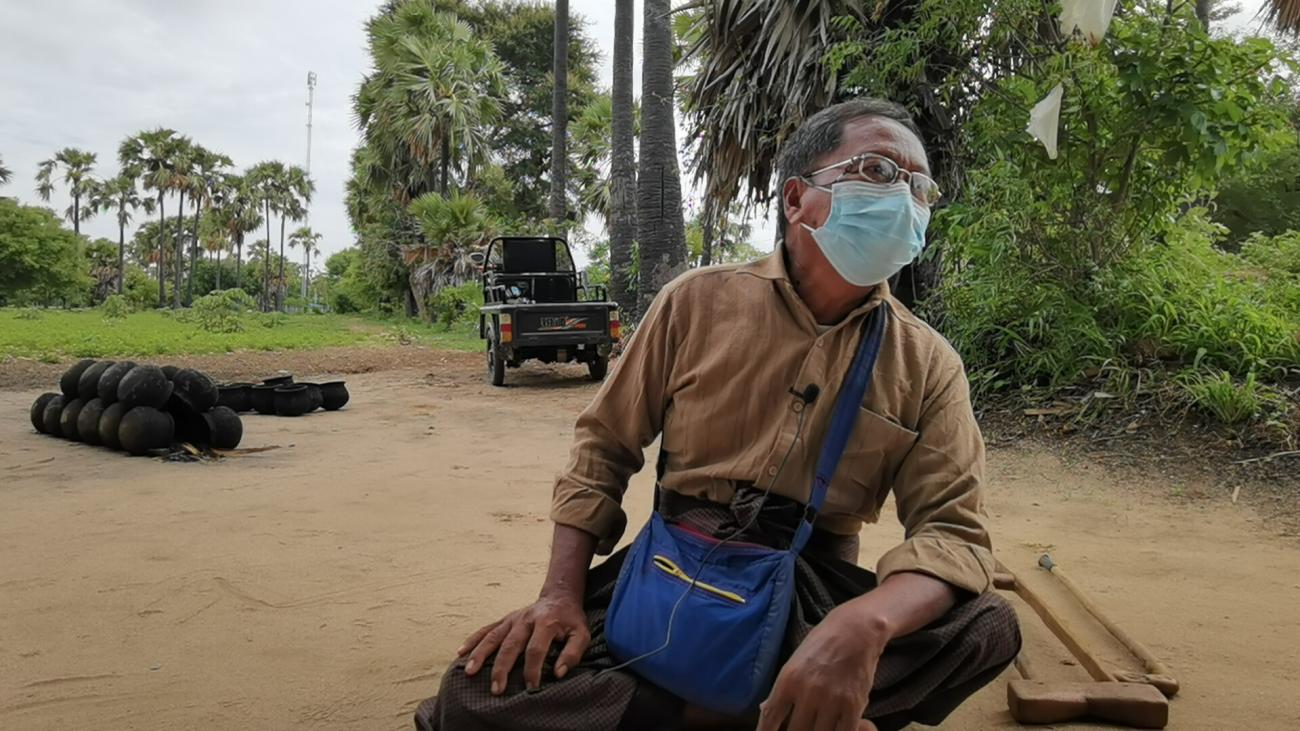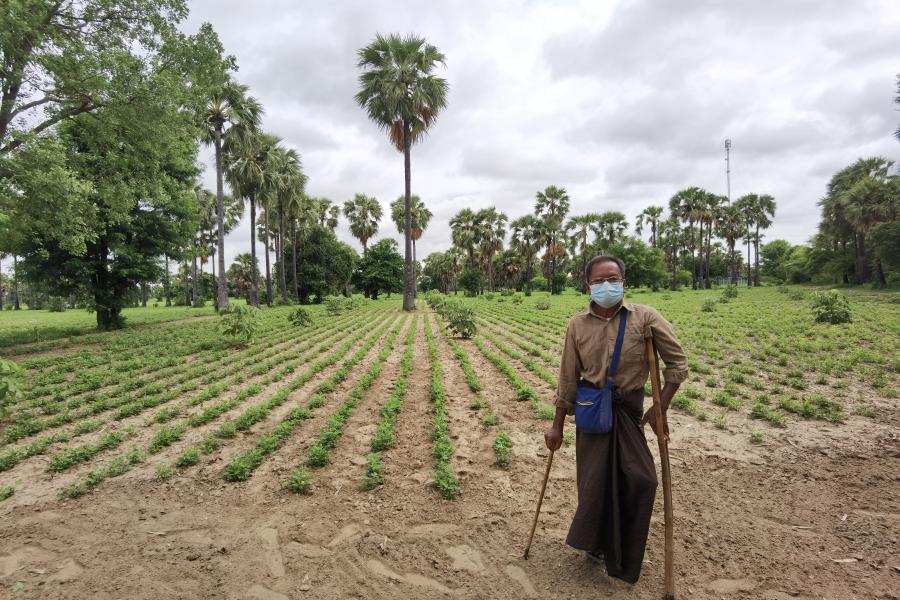Against the odds, meet a farmer who continues farming to support his family and build his community

The UN Secretary General Antonio Guterres has called for a "brave, visionary and collaborative" response to COVID-19.
The UN chief said that the world is confronting two urgent crises: COVID-19 and climate change.
“Let us tackle both and leave future generations with the hope that this moment is a true turning point for people and planet,” he said when launching the UN response to COVID-19.
COVID-19 is forcing us to revisit our values and design a new area of development which balances economic, social and environmental progress as envisioned by the 2030 Agenda and the SDGs.
Integrated solutions are the only way in which we’ll be able to build a greener and more inclusive future to help countries meet the 2030 goals.
In Myanmar all UN agencies have come together as one to respond to the threat from the pandemic, with their response based not only on health and economic needs but also ensuring that the sustainable development goals form the basis of building back better.
In this story from the Food and Agricultural Organization of the United Nations we see how sustainable agriculture and support for farming through the pandemic has impacted on the life of one farmer who isn’t letting his disability stop him caring for his family.
Against the odds, meet a farmer who continues farming to support his family and build his community
Hard work and a positive mindset have helped U Cho, a sixty-one-year-old family farmer from Nwar Kyoe Aing village in Nyaung-U Township, overcome difficulties and hardships in his life from a very young age.
At the age of five, U Cho contracted polio which left him paralyzed in his left leg. After completing his primary education, U Cho dropped out of monastic school.
“With no hope of joining public service, at the time, I did not think I will make it in life,” he says.
“I did not lose hope. I am happy that I was able to send my two boys to school. Both have now graduated. I am at home with my wife and my younger son, who helps me with the farming.
“Farming is my life.”
Changes in climate patterns make it difficult for farmers to decide when to start ploughing, sowing, and cultivating crops, and with low rainfall in the region, it is a challenging environment for those who solely rely on rainwater.
“I lost five acres of sesame due to drought this year,” U Cho says.
Making the situation worse are the measures introduced to control the spread of the COVID-19 pandemic.
Trading is slowing down because of movement restrictions.
“Market demand is uncertain in the time of COVID-19, and prices for the main crops we grow have decreased.
“But the price of rice we have to buy has gone up since the outbreak of the pandemic.”
“I have to lower our daily expenses, and we are now eating more roselle than meat as our main dish.”
“I am now 61, and I have not experienced anything like this COVID-19 disease. In the beginning, I was scared, but staying at home is not an option. I have to work to earn a living so I can buy food and feed my family.”
The Food and Agriculture Organization of the United Nations (FAO) has helped.
Through its flagship program—the Sustainable Cropland and Forest Management in Priority Agro-Ecosystems of Myanmar (SLM) project—FAO provided 13 types of vegetable seeds to 2,049 families in five project townships under a home gardening programme.
U Cho received five types of vegetable seeds and other inputs from the project and harvested the vegetables for home consumption and was able to sell the surplus.

In September 2018, U Cho participated in a farmer field school programme as a Lead Farmer and attended training on climate-smart agriculture. U Cho has established a demonstration plot with the knowledge from the training and is now facilitating training on sustainable agriculture techniques to his peers.
But again, COVID-19 interfered. Every village has makeshift bamboo gates and volunteer guards at the entrance and does not allow visitors, so access has become difficult for trainers.
“The knowledge sharing session has been postponed due to COVID-19. I hope we can resume all training activities very soon. I believe that if everyone is doing their part completely, we shall overcome this crisis.”
The SLM project is funded by the Global Environment Facility and is jointly coordinated and implemented by the FAO; The Ministry of Natural Resources and Environmental Conservation and The Ministry of Agriculture, Livestock, and Irrigation.
The project seeks to build the capacity of farming and forestry stakeholders to mitigate climate change and improve land conditions by adopting CSA and sustainable forest management policies and practices.
Continue reading here to learn more about the immediate barriers and challenges facing rural farmers a in the Central Dry Zone and Delta/Coastal Region in Myanmar
FAO projects in Myanmar: http://www.fao.org/myanmar/programmes-and-projects/en/
If you liked this story you will probably also like this: https://myanmar.un.org/en/53123-wfp-steps-food-assistance-and-logistics-support-help-fight-covid-19-myanmar







